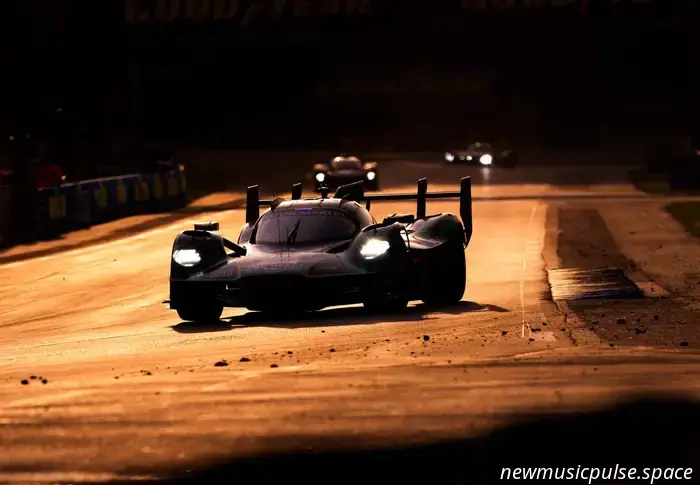
There was a period when motorsport was dominated by a specific type of individual. You know the sort: dressed in a parka, clutching a stopwatch, with a gravelly voice, squinting from the pit wall, possessing extensive knowledge of gear ratios and lap times. The grandstands were filled with hardcore fans who revered torque curves and chassis strength, while the paddock was more about fuel than contemporary culture. However, racing no longer resembles that. Motorsport has transformed significantly. It’s no longer merely about cars competing. Today, circuit racing holds cultural significance.
It has evolved into a lifestyle, a scene, and a form of social communication. Racing is now seen as trendy. Not in the ‘rev your engine’ way, but in the sense of ‘appearing at the afterparty and recognizing the soundtrack.’
24 heures du Mans – Hour Eleven: celebrating trackside
This year, I had the opportunity to witness Le Mans 2025 through the lens of Aston Martin, who made their return to the top class of endurance racing for the first time since the 1950s with their Valkyrie AMR-LMH hypercar. It marked a pivotal moment for the brand and offered an ideal chance to observe how the renewed cultural significance of racing extends beyond Formula 1.
The change in Formula 1 into a worldwide pop culture phenomenon was not incidental. Netflix’s Drive to Survive provided fans with a behind-the-scenes narrative arc worthy of high-end television, personalizing the drivers and transforming team rivalries into fully developed plots. Following Liberty Media’s acquisition, social media strategies advanced rapidly, turning paddocks into influencer runways and grid walks into eye-catching events akin to red carpets. Coupled with younger and more diverse audiences joining in, a new sport was born. F1 morphed into a lifestyle brand.
For attendees, this transformation means more than just the on-track action; it paves the way for well-curated weekends filled with music, fashion, technology, and hospitality. This year alone, artists like Alicia Keys, Pharrell, Martin Garrix, Raye, Tems, Fatboy Slim, and Machine Gun Kelly have been featured at F1 race weekends and related events.
The upcoming F1 movie featuring Brad Pitt and Damson Idris showcases tracks by Roddy Ricch, Doja Cat, Darkoo, and Peggy Gou, allowing us to experience a new, modern racing playlist.
For brands, it’s an unparalleled opportunity to engage a next-generation audience in a setting that blends racing with genuine cultural experiences.
But can other racing events match the energy of F1?
Le Mans 2025, despite its historical significance and intense, round-the-clock drama, provided only a glimpse of how motorsport could progress. The racing was fierce, and the atmosphere was electric, showcasing unmatched endurance. However, in terms of broader cultural experience—like the music, fashion, and scene-setting that modern audiences increasingly anticipate—it was somewhat lacking. The main Saturday night performance, featuring Kool & the Gang, was iconic, but not exactly a magnetic draw for Gen Z or even that captivating for millennials like myself. There were hints of modernization with some DJ slots and curated experiences, but they didn’t approach the festival-level narrative that we now see around F1 weekends.
Aston Martin's approach to the weekend distinctly stood out as an exception. They grasped the concept perfectly. Their hospitality at the Le Mans Country Club felt less like a pit lane and more like Paris Fashion Week meets peak Ibiza season. With live music, a DJ playing late into the night, caviar flowing freely, and young Hollywood star Tom Holland test-driving the brand’s track-ready Valkyrie alongside Le Mans legend Darren Turner, it was indeed flashy, but also impeccably timed. It felt like a scene rather than just a brief stop. Aston Martin didn't come just to race; they came to entertain, to influence, and to host, tapping directly into the cultural moment motorsport is experiencing.
However, there’s still much to be done. Imagine if Le Mans adopted this approach throughout the event. If the entire weekend was viewed as a cultural experience, rather than merely a sporting one. A carefully curated lineup of innovative artists, a proper main stage, designer pop-ups, immersive audio installations, fashion collaborations, and wellness zones. Le Mans could become a hub for a new type of motorsport lifestyle, providing another reason to travel to beautiful central France for a social event. One where the sound of engines serves merely as the opening act. Aston Martin has demonstrated that it’s achievable. Now it’s time for the FIA and WEC to follow suit.




It's one of the enduring enigmas linked to Glastonbury - why did Led Zeppelin never take the headline spot at the festival? The event in Somerset has evolved into
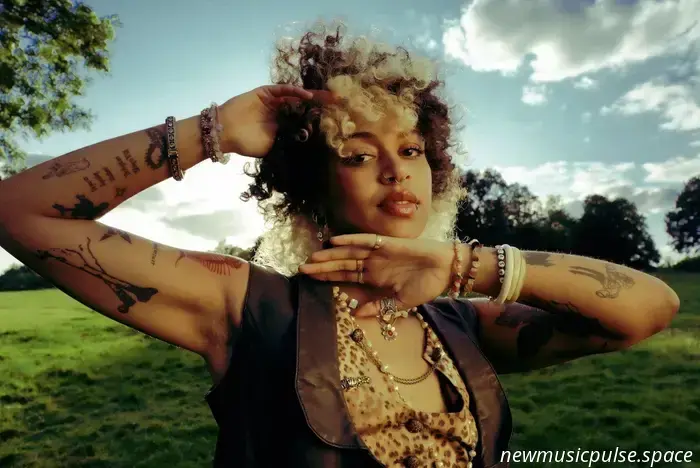
London-based alt-pop artist Nxdia explores themes of desire, identity, and fearless self-expression in their new track “Body on Me,” a daring, playful, and intense anthem from their debut mixtape 'I Promise No One’s Watching.'
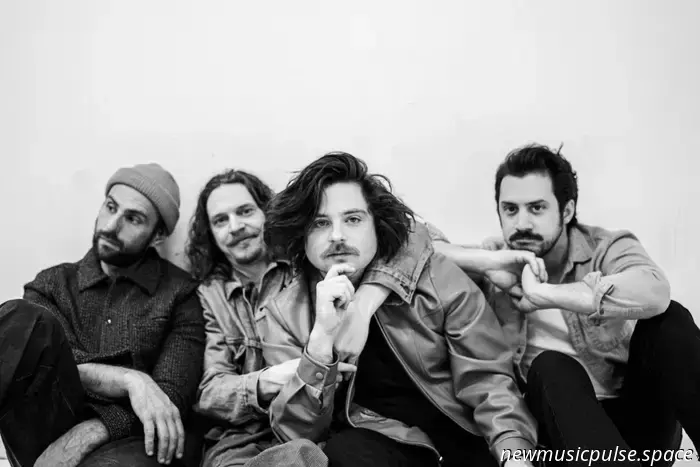
Philly indie rock group Mo Lowda & the Humble guide us through their dynamic, cathartic, and sun-drenched fifth album, 'Tailing the Ghost,' track by track. This lively and emotionally rich record was created during their travels and designed to inspire movement, reflection, and connection.
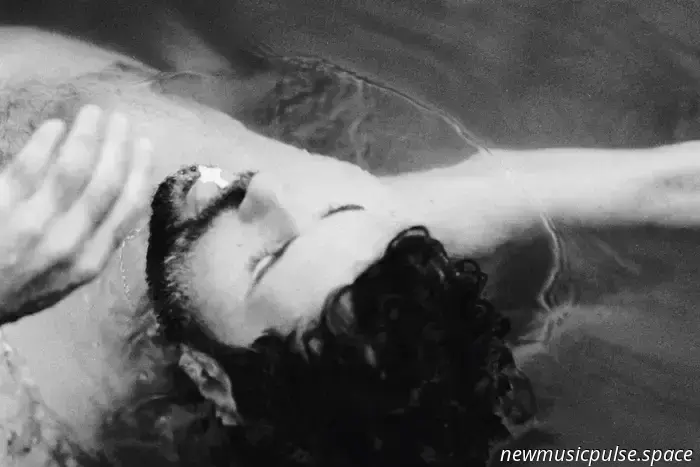
Widely praised artist Nick Mulvey makes his comeback after three years with 'Dark Harvest, Pt. 1,' a captivating homage to resilience and optimism.
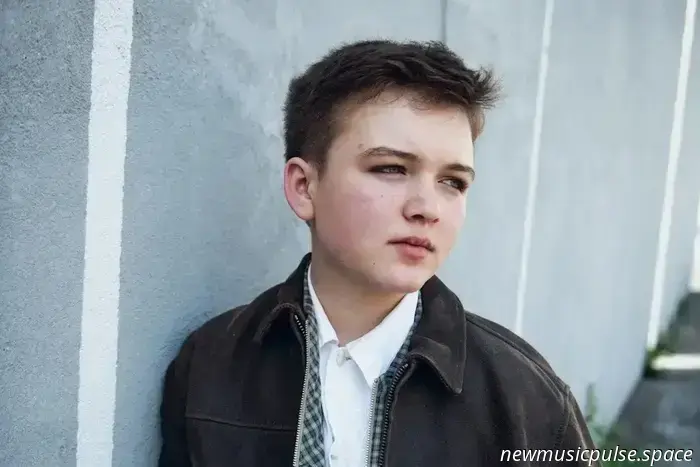
Singer-songwriter Tobi LaCroix shares his thoughts on identity, acceptance, and self-expression in his personal essay titled “Palatability as a Trans Person” for Atwood Magazine's Pride Month series!
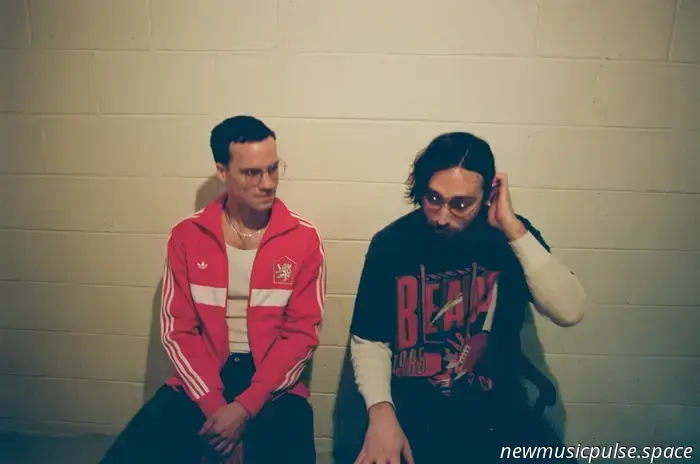
Caamp is set to open at New Haven's Westville Music Bowl, with the Chicago duo Whitney performing a show featuring new singles, impressive collaboration among bandmates, and a showcase of their distinct blend of instruments.
There was a period when motorsport was dominated by a specific type of man. You know the sort: wearing an anorak, clutching a stopwatch, gravelly-voiced, and squinting from the pit. Racing has experienced a transformation, incorporating a burst of newer, more vibrant, and trendier music. Yet, can other racing weekends emulate the cultural influence of Formula 1?